(Updated at 2:18pm, 7 March 2011)
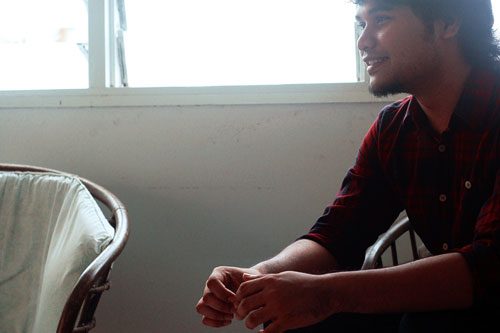
DURING his college days at Monash University in Melbourne, Australia, singer-songwriter Reza Salleh would organise open-mic gigs, where he would entertain campus crowds with his music.
Moving back and forth between Melbourne and Kuala Lumpur proved to be a stepping stone for Reza in developing his craft. Today, he is a central figure in Malaysia’s independent music circuit. In 2005, he founded Moonshine, a twice-monthly gig for indie singer-songwriters and home-grown bands. It has been touted as one of the most popular live music circuits in the Klang Valley.
Last year, Reza released his debut album, Realize. He continues to gig regularly around Kuala Lumpur, and has also performed in Singapore, Thailand and Laos, and in Sydney and Tasmania. (Updated) He will be performing at Dewan Filharmonik Petronas in June.
The Nut Graph finds out more about Reza in this 23 Feb 2011 e-mail interview.
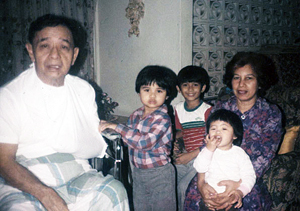
TNG: Where were you born and where did you grow up?
Reza Salleh: I was born in Kuala Lumpur in 1982. Almost immediately, my family moved to Air Tawar in Perak. My father was an engineer and got a job there. We were there for two years before we moved to Melbourne, [where] father studied for his masters [degree]. I remember being enrolled in a playschool there when I was three.
After two years, we came back to Malaysia and stayed with my grandmother in Section 12 in Petaling Jaya (PJ), before moving into our own place in Damansara Utama. I went to school there until I was in Standard Two. Then my father got a job in Alor Setar, Kedah, so we stayed there until I was in Form One before moving back to KL. We stayed in Bukit Damansara until 2001 and eventually moved back to PJ.
Can you trace your ancestry? What generation Malaysian are you?
On my father’s maternal side, we’re descended from Javanese nobility — specifically from Solo — who came here approximately 150 years ago to open farms. They settled in Muar and my great-grandfather — a tall, fair man who was half-Dutch — was known as Orang Kaya Parit Bakar due to the plantations he owned and his personal wealth.
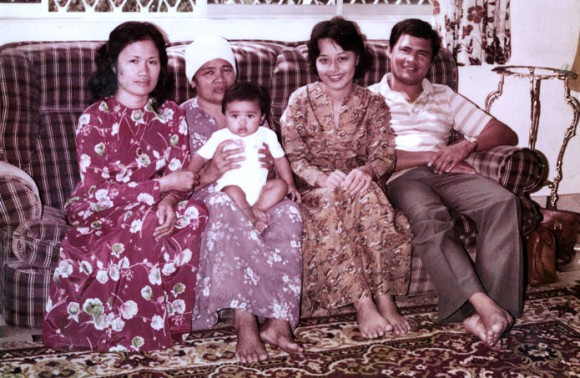
On my mother’s maternal side, we’re descended from Johor Bugis nobility that moved to Pahang in the 18th century, specifically Tok Tuan Keraing Haji. He was a Bugis high official and [expert] silk weaver who fled Makassar Island in [Indonesia] when the Dutch invaded. He settled in Kampung Mengkasar, Pekan.
On my mother’s paternal side, my great-great-grandfather was a customs officer who worked in Klang for the English. He had migrated there from Durian Tunggal, a border town in Malacca, and his father was a penghulu in Rembau, Negeri Sembilan. A lot of Arab, Singapore and Sulawesi [heritage] mixed up on that side, too.
According to my maternal side, I’m a 10th-generation Malaysian.
What is your strongest memory of the place where you grew up?
I remember waking up really early in Clayton, Melbourne to watch He-Man on my own, walking back from playschool with my mom, and getting presents during Christmas. I remember playing badminton in front of my house in PJ when I was six, and the huge kerengga nest my sister and I walked by every day to school.
I remember being a bit of an outsider in Alor Setar due to my English being so good. Yet how much fun I had growing up there. I remember discovering girls when I came back to PJ. I think my strongest memories tend to be from my grandmother’s house in PJ, where I spent a lot of time growing up. We had the best Raya celebrations.
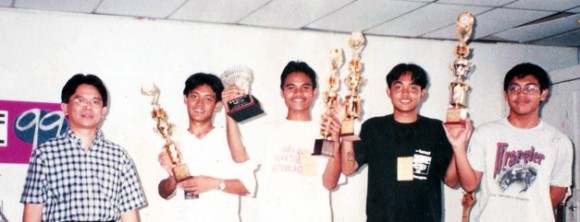
What stories or personal anecdotes do you hold on to the most from your family?
My maternal grandfather was a strict Arab-blooded man who worked hard, partied like P Ramlee, and kept his kids in line with an iron fist. He had a major soft spot for his grandchildren, though, and loved it when we played around the house. He suffered a stroke nine years before he passed, and half of his body was paralysed, severely restricting his mobility.
I remember us setting up “camp” over the bordered bed he had at home and how he didn’t mind us at all making such a ruckus. There is a certain kind of warmth I associate with those memories, ones I will never forget.
I also have one regret with regard to my grandfather. When I was reaching my teens and was getting more into video games, I would sit at the computer at my grandparents’ house and be engrossed in whatever game I was playing. I remember him calling out to me from his wheelchair in the dining room on a few occasions, and I would tell him that I was busy. He died not long after. I will always regret not going to him. I think about that almost every time I feel I’m too busy for a loved one.
What aspects of your identity do you struggle with the most as a Malaysian?
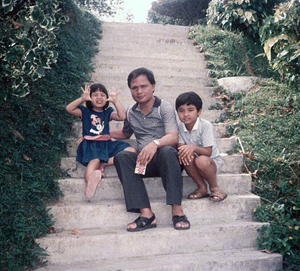
I have issues with a number of things associated with being a Malaysian. I love my country and the ideas that it stands for, but it’s hard sometimes to be a proud citizen.
We see words like harmony, equality and diversity paraded around whenever Malaysia is described, either to the rest of the world or to each other, but the reality is a much more bitter, hollow truth. Many preach these things, but at the same time endorse, encourage and promote racial agendas.
I’ve seen people get all riled up when someone even attempts to discuss Islam, but at the same time have no qualms about supporting people who stamp on a cow’s head during a protest [against the relocation of a Hindu temple]. I’ve seen religion used as a tool to control and judge people here, helmed by narrow-minded people unwilling to budge on religious discourse. I tire of how something as open and welcoming as Islam is used by people who are inflexible and devoid of common sense.
We talk about losing touch with our culture and heritage, but we tear down heritage sites and our forests. We talk about how foreign music acts coming in will promote negative elements among our youth, but we show 10 times more on TV (and our kids are still okay, mind you). We ban animated movies about Moses because we think the people’s faith will be shaken. Are we so weak in our faith that a mere movie is going to make me want to renounce my religion? I feel insulted.
I have issues with how there are resources at hand to say, develop the creative arts scene, but the money never gets to the people who would actually know what to do with it. I am saddened that our greatest resource, our own people, have been packing up and leaving the country because they have had enough.
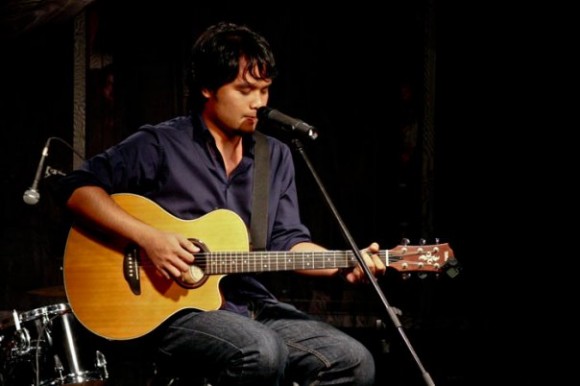
Describe the kind of Malaysia you would like for yourself and future generations.
I’d like to live in a Malaysia where how well you do in life is based on merit rather than ethnicity. Where your race is just something interesting about you rather than something that dictates how you live your life, who you hang out with, and who you might vote for.
I’d like a Malaysia where politics weren’t race-based and leaders don’t wave weapons in the air at general assemblies.
I’d like a Malaysia that is safe, where the education system isn’t just about mugging for SPM examinations, and where the “brain drain” is a thing of the distant past. ![]()
The book Found in Malaysia, featuring 50 of our best interviews plus four previously unpublished ones with Datuk Zaid Ibrahim, Tan Sri Rafidah Aziz, Datin Paduka Marina Mahathir and Ramli Ibrahim, is now available at all good bookstores for RM45.


Mooky says
I’ve known Reza for more than a decade, he is one of the warmest, kindest and not forgetting most intelligent persons I know. Not only does he have fans, people really look up to him, including myself. Thank you Reza, you are indeed an inspiration to us all.
Main says
This is pure Malaysian. There’s a ‘term’ […] for this ,”banana”. In Reza’s case, I still need to find one that is suitable… 🙂
Bleah says
Are there any Malay Malaysians who AREN’T descended from some regional/tribal nobility or other?
That seems to be the recurring claim in a lot of interviews I’ve read.
JW Tan says
Lots of little kingdoms = lots of noble families to be descended from.
Most Chinese Malaysians (and many Indian Malaysians), in contrast, are descended from peasants or indentured labour. Not many Found in Malaysia interviewees boast about that!
Shahi says
There is a certain egalitarian sense in Malay culture, as long as you have a certain quality you would be respected and could make a name for yourself. A [person] can become [ruler], a commoner a warrior. This was not restricted to the Malay race, but also to other races: Arab traders turned into religious sheiks, Chinese to Kapitans and Indians to Bendahara. Fear, perhaps, has changed this nature to that of a protective one, protective of ancestry, protective of race … a fear that there is a possibility of losing one’s land, culture and influence.
Catherine says
I love reading about open-minded and exposed people. Thanks!